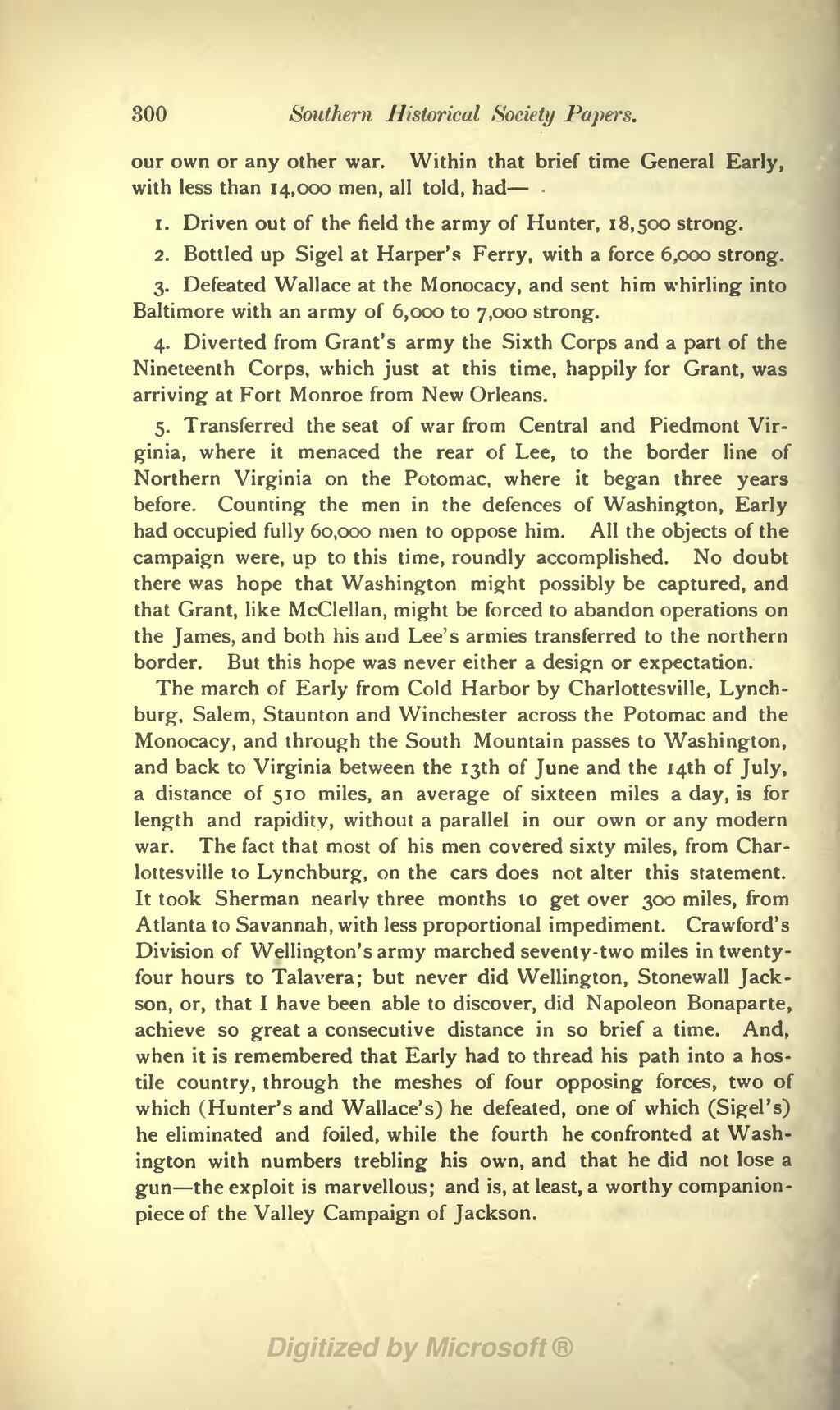300 Southern Historical Society Papers.
our own or any other war. Within that brief time General Early, with less than 14,000 men, all told, had
1. Driven out of the field the army of Hunter, 18,500 strong.
2. Bottled up Sigel at Harper's Ferry, with a force 6,000 strong.
3. Defeated Wallace at the Monocacy, and sent him whirling into Baltimore with an army of 6,000 to 7,000 strong.
4. Diverted from Grant's army the Sixth Corps and a part of the Nineteenth Corps, which just at this time, happily for Grant, was arriving at Fort Monroe from New Orleans.
5. Transferred the seat of war from Central and Piedmont Vir- ginia, where it menaced the rear of Lee, to the border line of Northern Virginia on the Potomac, where it began three years before. Counting the men in the defences of Washington, Early had occupied fully 60,000 men to oppose him. All the objects of the campaign were, up to this time, roundly accomplished. No doubt there was hope that Washington might possibly be captured, and that Grant, like McClellan, might be forced to abandon operations on the James, and both his and Lee's armies transferred to the northern border. But this hope was never either a design or expectation.
The march of Early from Cold Harbor by Charlottesville, Lynch- burg, Salem, Staunton and Winchester across the Potomac and the Monocacy, and through the South Mountain passes to Washington, and back to Virginia between the i3th of June and the I4th of July, a distance of 510 miles, an average of sixteen miles a day, is for length and rapidity, without a parallel in our own or any modern war. The fact that most of his men covered sixty miles, from Char- lottesville to Lynchburg, on the cars does not alter this statement. It took Sherman nearly three months to get over 300 miles, from Atlanta to Savannah, with less proportional impediment. Crawford's Division of Wellington's army marched seventy-two miles in twenty- four hours to Talavera; but never did Wellington, Stonewall Jack- son, or, that I have been able to discover, did Napoleon Bonaparte, achieve so great a consecutive distance in so brief a time. And, when it is remembered that Early had to thread his path into a hos- tile country, through the meshes of four opposing forces, two of which (Hunter's and Wallace's) he defeated, one of which (Sigel 's) he eliminated and foiled, while the fourth he confronted at Wash- ington with numbers trebling his own, and that he did not lose a gun the exploit is marvellous; and is, at least, a worthy companion- piece of the Valley Campaign of Jackson.
